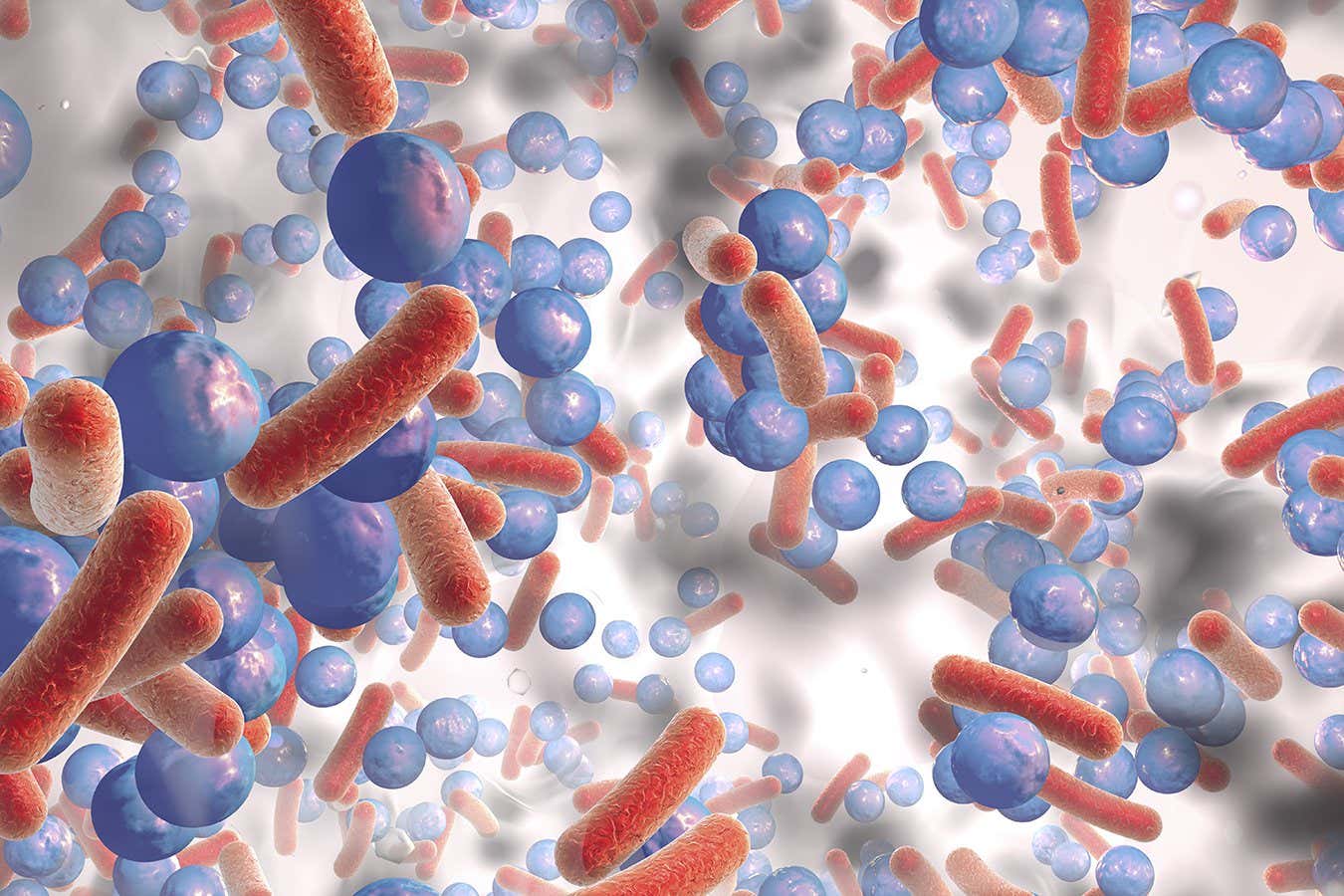Bacteria are more susceptible to antibiotics when they can’t produce fatty acids, suggesting that drugs inhibiting this process could help us overcome antibiotic resistance
By Grace Wade
1 May 2023
A drug combination can treat antibiotic-resistant bacteria
Kateryna Kon/Shutterstock
Pairing antibiotics with drugs that prevent bacteria from producing fatty acids may help combat antibiotic resistance. The drug combination was more effective at treating bacterial pneumonia in mice than antibiotics alone.
Bacteria have been evolving resistance to antibiotics since the drugs were developed around a century ago. Now, only a small subset of these medications can treat certain pathogens, and even these are losing their efficacy.
Eric Brown at McMaster University in Canada and his colleagues tested a combination of drugs on two different strains of five bacteria. One strain was resistant to colistin, a last-resort antibiotic that binds to fatty acids in cell membranes in order to infiltrate and kill bacteria.
Advertisement
In the presence of the drug, colistin-resistant bacteria produce more of a vitamin called biotin. So, the researchers applied both colistin and a compound that prevents biotin production to the bacteria.
Read more:
Wine experts’ unique nasal microbiome may affect their smell and taste
After 18 hours, they measured the efficacy of the treatment by analysing how much the drug pair prevented bacterial growth compared with either drug alone. This metric, called the fractional inhibitory concentration (FIC) index, ranges from 0 to 1, with smaller numbers indicating greater efficacy.
